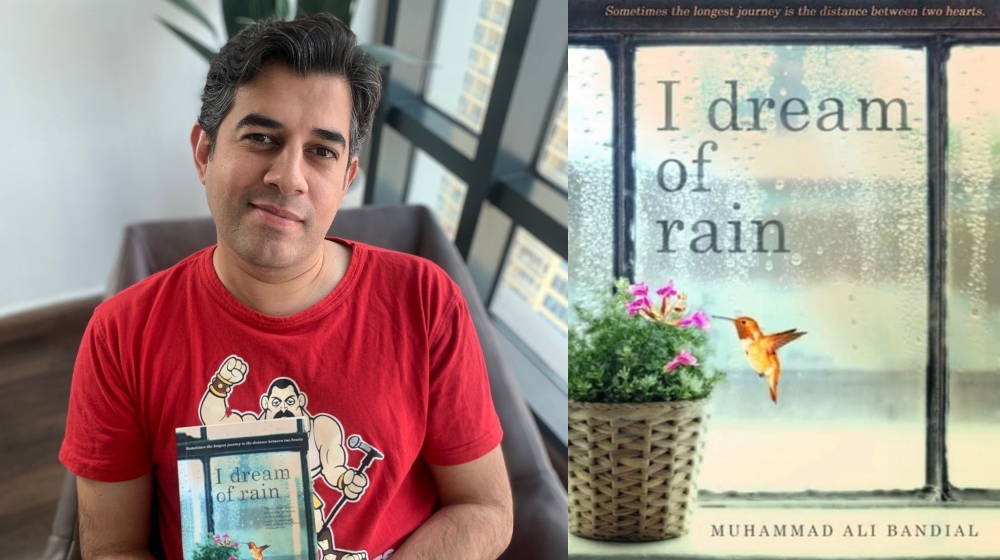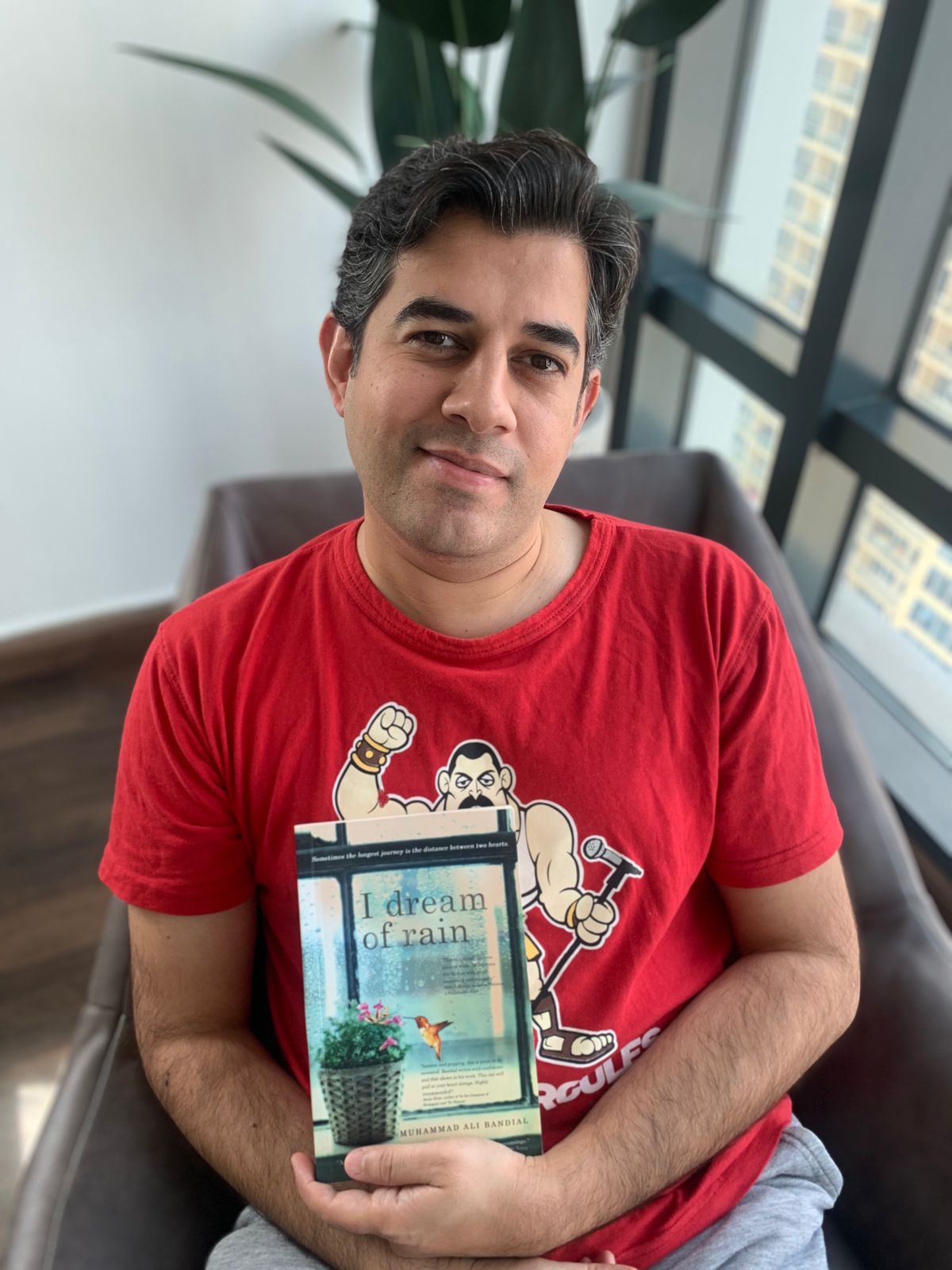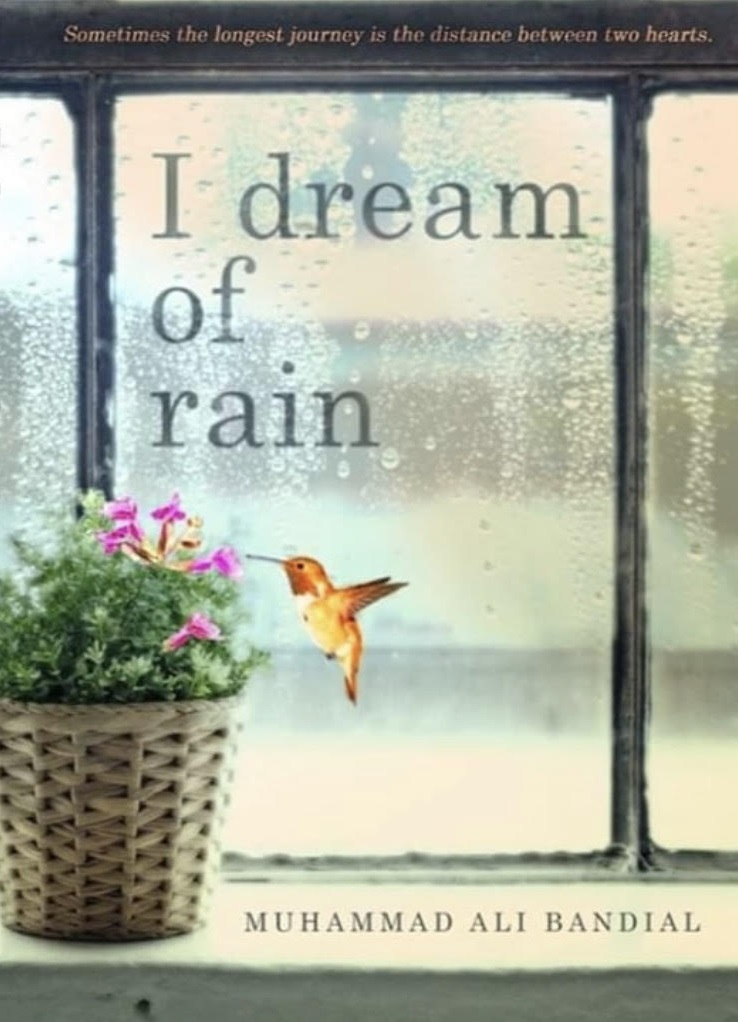Muhammad Ali Bandial author of ‘I Dream of Rain’ talks about his journey and the things he feels strongly about as a writer
How did you start writing?
Growing up, I was a voracious reader, I’d read anything I could get my hands on. I just loved getting lost in the worlds inside the books. As an introvert, observing people and situations through words on paper suited me as it provided a layer of insularity. Reading led to me redefining and reinterpreting the world around me and making sense of it. This ultimately led me to start penning down my own thoughts. The medium of writing allowed a shy and reserved kid like me to really open up and communicate.
Once I started writing, there was no looking back. My imagination would just run wild. I’d turn one-page essays into proper short stories with plots and villains and climaxes. I remember in grade three we had to write an essay on a favorite picnic and I turned it into a three-page story about how I had gone to Pir Sohawa —this was before the Monal days when it was all jungle— and I turned it into a man vs wild story where we run into a pack of wild monkeys and I get separated from my family and have to survive on my own and make friends with some interesting characters on the way. I remember my English teacher making me stand up and read my essay out loud to the class, which was both a frightening and exhilarating experience. But from there on, there was no looking back.
What makes a good story?
I’ve grappled with that thought a lot, whether it’s the plot or the style that is the core element of a good story. And what I can say is that there is no right answer. You just have to be true to the story that you are trying to tell. A good story works like a time machine, it should transport the reader to the environment that you have created. Now, whether you do it with your words or with the plot, that’s up to you. Ultimately, the writer is just a vessel through whom the story flows. If it reaches the reader in a way that engages and resonates with him/her, you’ve done your job.
Tell us about your book.
So, the inspiration for the book is based on real events. My father had a serious accident, I had just graduated and was back home when I got this phone call from my mother. And the funny thing is that a few seconds before the phone rang, I had this weird premonition that something bad had happened. And while my father ultimately recovered, the thought had stayed with me, and then Covid happened where the whole world got this reality check about how so much of what we want to say to our loved ones keep getting pushed back because we think we have time. But there’s no assurance that we do.
The book is essentially this story about a young man who is estranged from his father whom he blames for a traumatic experience that the protagonist had to go through during his childhood which has scarred him and defined the relationships he builds over the years. Thirteen years later, the protagonist gets another chance to confront the wounds of the past and revisit his childhood as he is thrust into another situation.
As a South Asian writer, what do you want your readers to know through your work?
I grew up reading a lot of novels about cowboys and the wild west and I was fascinated with the whole culture, and I used to wish that I was also born there. The appreciation for my own culture and the realization that the elements of a good story, heroism, chivalry, betrayal, and loyalty, they’re universal and just as prevalent in our own society as they are in other parts of the world, came much later. But once it did, I couldn’t watch the way we were being shown in western interpretations as one-dimensional characters with stereotypical motivations that weren’t even based on fact.
I couldn’t believe that the whole world was buying into the narrative, and I just want to change that. You know when you read a novel by any western author, the character would say something like I got off at 27th west 4th street, and immediately you’re supposed to understand that he’s in New York.
Why can’t we write about the streets and cities of Pakistan like that without having to dumb it down through characters that are so narrow and clunky and not at all a reflection of our world? So, the argument would be that would it sell? That is something that you as a writer should decide. For me, I’ve spent enough time as a child trying to be a cowboy and someone I wasn’t, now, I want to write what naturally comes to me and is true to my heart. I want to write about people who are flawed, who are figuring things out, they don’t’ have all the answers, they learn by making mistakes. If it doesn’t sell, then it breaks. The first one through the door always gets a bloody nose and there are writers right now, who’re doing this and I’m very optimistic about the Pakistani writing scene.
Why fiction?
You know it’s funny because everyone I know has moved to non-fiction and I myself have started reading non-fiction, but fiction will always be my first love. When you look at those cave paintings of cavemen hunting those mythical beasts, they’re telling a story. Fiction has always been there and always will be because it makes the truth palatable, and you can say so much more through stories. Real-life, at any given time, has millions of plotlines and sub-narrative, and sometimes, it gets hard to focus on one theme or element. Fiction takes inspiration from real life and gives you, the author, the liberty to segregate the elements of real-life that you want to focus on and tell your story in a concise and more focused way.
What advice would you give to aspiring writers?
You probably hear this a lot but it’s true so I’ll also say it; believe in yourself, because only you can make your dreams come true. When it comes to writing or anything you want to do, go where there’s fear or resistance, because once you push past that inhibition, good things await. Just be honest, don’t write to impress, your readers will know when you’re being brutally honest, and they’ll love you for it.
Find the conversation with Liberty Books here;










